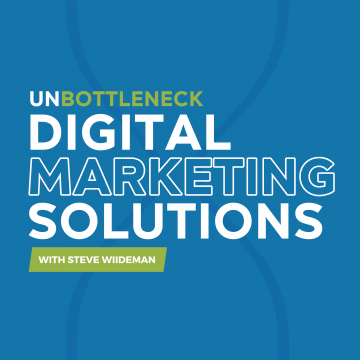Authoritative online entities, such as WebMD, Amazon, Wall Street Journal, and Buzzfeed have enough domain authority to rank on the first page of Google for just about any search term they’d like. So how do regular folks such as you and I compete when these entities have more budget, more resources, and more trust with the search engines?
We get asked this question frequently, and our first suggestion is to start targeting less broad and focus keyword efforts to be as relevant as possible to users ready to purchase or complete a web form. However, we do have quite a few conversations with business owners who remember the heyday of search and lust to get back their top ranking for extremely broad short tail keywords. For those readers, here’s a video we play here at the office immediately after those calls we have with you.
To be fair, it is not at all impossible to still get reasonable ranking in Google search results for competitive keywords, but you have to commit to each page as a permanent part of your ongoing online marketing strategy and be willing to spend whatever it takes to have the best page on the Internet for that keyword or keyword set.
Withstanding all the grassroots SEO techniques around page-level keyword optimization and recent Google Hummingbird keyword emphasis decline, there are 10 fundamentals we’ve learned for getting top ranking on Google and other search engines. Regardless of how optimized for search you believe your page might be, without these elements, your page may never truly have the full competitive advantage it deserves.
To Earn Top Rank in Google, Make Sure:
- Your page is 100% better than a competitor’s (compare Nespresso to Mr. Coffee)
- Your page loads faster, and if possible uses a CDN
- Your page is built for mobile first, then desktop and then tablet (responsive design)
- Your product or service is better and the user identifies that immediately
- Your pricing and online-only offer beats that of your competitor’s or your resellers
- Your title and meta description are more click-enticing then your competitors’
- Your page is easy to share and link to
- You’re doing other marketing to get people to search for your entity and keyword
- You’re doing other marketing to get writers to mention your entity and keyword
- Your’e getting linked to as a resource or reference in relevant content
Remember Not to Over-Optimize
Times are changing. Sure using an important keyword in your page title and within content is still a simple way to push to Google what your page about, but it’s the external pages and real user behavior that ultimately persuade the search engine giant to display your page within the top of their search results.
If you find yourself in an argument with someone over why a particular listing that violates the 10 fundamentals above ranks without the higher quality content or without the inbound link or mentions that your amazing page has, I encourage you to compare the age of the competing page using Archive.org. In 9 out of 10 cases, the reason the page outranks others is simply the amount of history that URL has within search engine results. Mathematically, the older page will always have significantly more long-term clicks and potentially higher click-through rates than other listings.
Stay Relevant My Friends
I don’t always optimize web pages, when I do, I prefer to start with user experience. When you’re keyword-optimizing a piece of content, be sure that your selected keyword theme is relevant to 80% or more of users performing the query. Test, by searching for the phrase or phrases you’re targeting. If your page doesn’t fit into what Google is listing, you’re likely going to be fighting an uphill battle.
Stay relevant, stay awesome, and please share your awesome top-ranked page below so fellow SEO’s can match our factors to your example.




